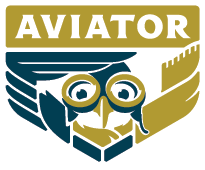Can Older Parrots Learn New Tricks? Yes and No!
I was recently asked my opinion about an article a macaw owner read that contained this passage.
In the age of 4-5 years, Macaws will begin to sort their own life and all training will become weak. Even the best trained bird will go his own ways and therefore all Macaws in Circus and other attractions will be replaced by younger ones. Training of adult birds is nearly impossible.
To provide a correct answer it is necessary to ask two questions.
Can a properly raised parrot be a great pet and continue to learn to fit in with the family for life?
Will many pet parrots be difficult to deal with and un-trainable as they become mature adults?
The answer to both questions is YES.
(Caution: Parrots as pets is a relatively new phenomena of the last 40 years. Before 1985 there were only a few types of cages, pelleted food was just starting, behaviorist was anyone with a pet bird, most birds were wild caught, virtually all were clipped they day they started flying, there was no Aviator Harness and most spent all their lives in a small cage. Conditions for pet birds will probably change as much in the next 10 years as they have in the last 100 so make sure you consider the past present and future as you read ahead.)
30 years of experience has shown me there exist five major obstacles for most baby parrots to be ‘RAISED’ properly to live a full life in our domestic homes.
Humans do not understand the sensitive periods of brain development and what the baby parrot needs to be exposed to during those critical phases.
Most baby parrots are not able to ‘Retreat and Approach’.
Most baby parrots are not able to ‘Freely Explore their Environment’.
Most baby parrots spend too much time in jail.
Too many humans do not understand their own limitations to raise a baby.
Evidence clearly shows that adult parrots that have not been ‘raised’ properly will exhibit unpredictable adult behaviors. Most parrots are just not educated enough to understand how to continually fit in as adults and will require the special skills of a professional trainer all their lives. This is why there is such a big business in teaching owners about training.
Raising parrots is very similar to raising children. When we are young we are subordinate to anyone we see as a parent and are a sponge for guidance. In this respect we usually try to follow directions. This is not an indication we are being taught, just that we are genetically programed to follow the lead of adults because this is how we learn to make decisions as adults. In the case of most birds the human parent is not very consistent and does not provide consistent quality guidance so the young bird that is programed by nature to learn is never able to completely figure out what is expected of them.
Once a parrot becomes an adolescent they are now challenged to use the ‘Nurturing Guidance’ their parent provided (or did not provide) to figure out how to survive as a successful adult. It is no secret that poor parenting of children has the same results. Just as we see in humans these poorly raised parrots spend a lot of time in jail. Now the very social parrot becomes frustrated and confused and develops the exact same syndromes we find in ‘Stir Crazy’ prisoners.
It is no secret that we humans are very poor communicators and educators. ‘It takes a village to raise a child’ is a well understood statement in all cultures. In my case I have had hundreds of associates work with us over the last 30 years to learn how to properly RAISE pet parrots.
Educating breeders and bird owners to RAISE parrots properly so they understand how to fit in as adults has been a goal of ours for over 30 years. Check back for future entries about how to make these 5 conditions work for your friends.
The 8 Most Important Commands
Patsy Swartz is the Bird Whisper at The Parrot University. Later we will discuss the 8 most important command a parrot needs to know. These 8 commands will form the foundation necessary for parrots to thrive in a living room.
4 Week Old Baby Catalina Macaws
One of the most important sensitive period of brain development starts 3 days before any baby bird hatches. Yes, that’s correct. Parent birds actually talk to the baby after he pips and starts making noises in the egg. The feedback between parents and the baby at this time start the neuro responses in the brain that help the baby become a gregarious nurturing adult. Beware of incubator hatched babies.
Babies Start Socializing Long Before They Leave the Nest
After 5,000 babies we are still amazed to watch them learn how to get along at this very young age. By 6 weeks they are already starting to develop friends.



